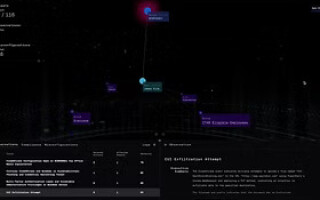Defense industry adapts to pandemic
StoryApril 23, 2020
As I write this, we’re finishing up our April/May issue of Military Embedded Systems, our annual Unmanned Systems issue. Its publication annually coincides with the AUVSI XPONENTIAL trade show, which was to be held this year in Boston during the first full week of May.
Due to the global COVID-19 pandemic, it’s been tentatively postponed until August 8-10, still in Boston. Will that date hold? Or will XPONENTIAL follow other aerospace and defense shows that were to be held this spring but were canceled, including AUSA Global Force, Quad A, Aerospace Tech Week, Sea Air Space, SOFIC, and Eurosatory?
We still don’t know. Some states are keeping their shelter-in-place orders in effect until June, while others are pushing to lift them in May.
Despite the uncertainty, the defense industry must carry on and is in fact doing so: Defense electronics companies – prime contractors, system integrators, and commercial off-the-shelf (COTS) suppliers – remain essential businesses as defined by the government and can thus remain open during shelter-in-place orders.
Some companies – such as primes – are better suited to survive this uncertain period than others; some smaller COTS suppliers who play in markets other than defense, such as commercial aerospace, might see more bumps ahead.
The pandemic has significantly affected the commercial aviation business as airlines across the globe ground their fleets, Mark Aslett, CEO of Mercury Systems in Andover, Massachusetts, told me recently in my McHale Report podcast. (Listen to the podcast here: http://mil-embedded.com/12378-defense-industry-response-to-covid-19-pandemic/.) There has been a wave of furloughs and layoffs throughout the aerospace industry, “but it has not impacted us, as most of we do is defense-related and defined as essential,” he added.
The effects on the U.S. defense business were seen early on, Aslett said; depending on where defense firms were located, they had to close down until the government eventually declared those supporting the defense industry “essential businesses,” he noted.
While the top of the supply chain is steady, not every company in the defense supply chain is deemed essential in the eyes of the government. Many have also had to shut a facility due to illness. Pockets of uncertainty remain.
“We’ve seen progress around major primes supporting small businesses inside of industry,” Aslett said. “For many small businesses it comes down to cash flow. With the DoD improving the cash-flow performance, payments have filtered down into the small suppliers.”
He told me this was a lesson learned from the days of sequestration when that process did not happen and many small businesses took the hit.
Speed of acquisition is also a concern today and a topic I often talk about in this space. Along those lines, I asked Aslett if he’d heard any reports of funding getting to companies more quickly during the pandemic as a way to get cash to these businesses.
“We are and we aren’t,” he answered. Generally, the Defense Department is doing things such as adopting more use of OTAs [Other Transaction Authorities] to speed up the contracting process. Even before the pandemic, he said, there was “desire and work being done to speed up the flow.” However, he observed, some government entities have “stopped awarding new contracts at this time. It’s not as consistent as should be.”
Whether it’s the DoD speaking to primes and suppliers or company management helping their engineers, the key right now is communication: “There hasn’t been a time in my career that I’ve communicated as much as I’m doing right now. We’ve been very engaged with our customers, communicating with them and with industry associations as well as shareholders.”
The most important communication for any company is with employees – ensuring that they can work safely.
“Internally I chair the COVID response team,” Aslett said. “We meet daily on that and have been doing that for weeks now.” It’s about communicating at the speed of relevance so as to make decisions in real time – to protect the employees’ health and safety as well as livelihood, he added.
Aslett told me Mercury also initiated a $1 million emergency relief fund to help its hourly employees purchase supplies, food, medication, and the like.
Mercury is not the only company doing what it can to help employees and their communities. If you have a story to share about how your defense electronics company is responding in a positive way during the pandemic, please share it with me or our associate editor Emma Helfrich at [email protected]. We will gather and share them with our audience. We look forward to hearing from you.





